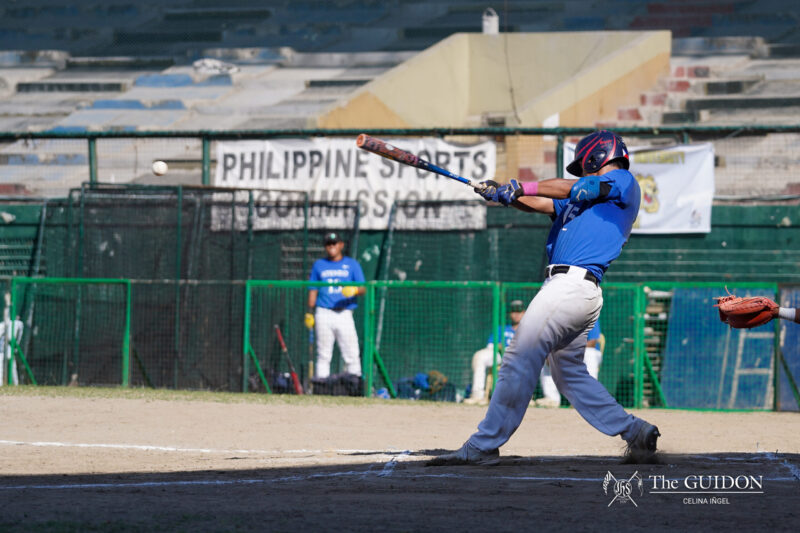Despite years of no results, Liga ng mga Lolang Pilipina (Lila Pilipina) president and executive director Rechilda Extremaduria perseveres in her organization’s work. There is still fire in her eyes when she speaks of her indignation at the administration’s close ties with Japan. More than 70 years after the end of the Second World War, she still sees them as victimizers of this country, most especially of the comfort women.
For her, their crimes are not any less atrocious today than they were decades ago. Their systematic coercing of women into sexual slavery is something that is still real to the lolas who have experienced it.
In Liga Pilipina’s headquarters in Barangay Amihan, Quezon City, there are pieces of art conveying abduction and abuse hanging on the walls. Alongside are pictures of the faces that made them. In that same room, Extremaduria says with a fury that doesn’t match her many years of exhaustion: “Things like this, you cannot let the world forget. That these things happen to women.”
What is even more painful is that there seems to be little interest from the Philippine government to address the issue. Previous administrations have promised to urge the Japanese government to give proper reparations but nothing has happened.
While the Japanese government had set up an Asian Women’s Fund (AWF) in 1994 to compensate “certified” comfort women, it was criticized as lacking, since it did not cover all comfort women.
The BBC reports that only 70 out of the estimated 1,000 former Filipina comfort women were alive as of 2016. Extremaduria estimates that 174,105 comfort women in Asia have since passed away.
The AWF reports that is has compensated 285 women from the Philippines, Korea, Taiwan, and the Netherlands. The fund has since closed in 2007.
War’s unspoken crime
Sexual violence is often the unspoken crime that pervades war. Men are killed but women often find themselves in the dark anxiety of fearing sexual abuse or even murder. During World War II, the Japanese military developed and carried out a systematic process of sexual slavery. This practice of Japanese troops is now known by many to have victimized hundreds of thousands of women across Asia who have since been called comfort women.
Essentially, the system involved the coercing of local women to sexually service whole battalions of Japanese soldiers without limiting the quantity or longevity of their service. At the time, the official purpose of such a methodical practice was to improve the mood of Japanese troops, but some historians claim that there were other reasons.
The systemization of abuses, such as rape, would have served to reinforce an already pervasive view among Japanese soldiers: that their race was superior to that of their Asian neighbors. It was a government-sanctioned proliferation of both ideological and physical violence.
Seeming to drift away from the pacifist stance they have adopted since World War II, Japan is under scrutiny for what the international community deems a revisionist recalling of the country’s past. The issue of the comfort women often begets this critique and more specifically, Japan’s wish to exclude this issue from historical narratives.
Stolen childhoods
Extremaduria profiles the members of Lila Pilipina as young provincial girls who were taken against their will by the Japanese army and forced to cyclically provide sexual service to whole garrisons of men along with others. She talks about the plight of many lolas she has worked with, who were essentially robbed of their childhoods: women who were abducted from their homes as early as age 11, imprisoned in comfort stations and were victimized by whole battalions of men.
There were women who were made to walk with the soldiers by day, whenever they would relocate, with ropes tied around their waists. At night, after a full day of walking, they would be laid down on mats and were systematically raped by the same soldiers they travelled with.
Extremaduria is unsure of how many comfort women are still alive today, since not all of them have kept in touch. Some have decided to move back to their provincial homes.
The ones she is still in touch with usually work menial jobs, not having received their education after World War II disrupted their lives. She said that a good number of them wanted to be teachers, as that was in fashion in their time, but none were able to attain that dream.
Lila Pilipina leads the fight to keep the plight of Filipina comfort women alive in national memory. Extremaduria details the organization’s conditions for justice. First, they seek an unequivocal apology from the Japanese government for the victims, their families and the Philippine nation. Second, they demand the inclusion of the Japanese sexual slavery system in mainstream historical narratives. Lastly, they would like to claim monetary reparation for the comfort women and their families.
The group has also led demonstrations whenever the Japanese Prime Minister or members of the imperial family are reported to be in Manila. Extremaduria recalls that at one protest outside Malacañang, some lolas were even hosed down by the police.
Likelihood of reparation
According to Benjamin San Jose, PhD, assistant professor at the Political Science Department and the Japanese Studies Department, though the unlawful coercing of Filipina women to sexual slavery fits the description of a war crime, it was never submitted as a case to the International Criminal Court or included in the Tokyo War Trials. This only makes the plight of the lolas more difficult to express in the eyes of international law.
San Jose also discussed the importance of seeking out public apology from a nation, especially those he calls “belligerent.” He explains that an apology from such a state is usually also accomplishes the following: acceptance of responsibility for the act, offering of unequivocal contrition, and rendering of compensation. Most importantly, a public apology pressures a country to desist from repeating the crime.
These terms of public apology are very similar to those demanded by Lila Filipina. San Jose notes that the comfort women issue has not been addressed by the Philippine government at all.
He cites the close economic relationship between Japan and the Philippines as the likely reason for the Philippine government’s silence. Just last January, President Rodrigo Duterte received President Abe in his Davao home. Given the continued closeness between both countries, and their ubiquitous silence on this issue, it seems unlikely that the lolas will receive reparations or even a proper apology.




